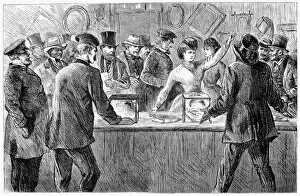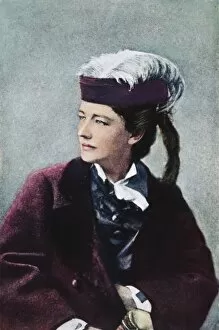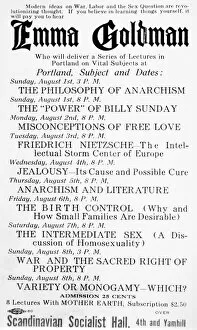Free Love Collection
"Free Love: A Revolutionary Ideology Embracing Boundless Affection" In the midst of societal constraints and moral boundaries
All Professionally Made to Order for Quick Shipping
"Free Love: A Revolutionary Ideology Embracing Boundless Affection" In the midst of societal constraints and moral boundaries, Emma Goldman emerged as a fierce advocate for free love. This American anarchist challenged the norms of her time, daring to envision a world where love transcended societal expectations. The oil painting capturing her essence at the Newcastle Music Festival in 1969 speaks volumes about her revolutionary spirit. Just like Gustave Dore's Bacchanal, she sought to liberate love from its shackles and celebrate it with unbridled passion. As the story goes, this festival was not just about music; it was an embodiment of freedom itself. It echoed Goldman's belief that love should be unrestricted by conventions or prejudices. In this gathering of souls, there was probably an air of liberation and acceptance that defied social norms. This photograph takes us back to a pivotal moment in history when Victoria Claflin Woodhull and Tennessee Claflin fought for their right to vote in New York City during election day in 1871. Their struggle mirrored Goldman's fight for free love – both movements aimed at breaking down barriers imposed by society. Through these glimpses into history, we are reminded that free love is not merely a concept but a powerful force capable of challenging oppressive systems. It encourages us to question traditional notions of relationships and embrace affection without limitations. Emma Goldman's legacy lives on as an inspiration for those who dare to dream beyond conventional boundaries. Her vision reminds us that true freedom lies not only in political revolutions but also within our hearts – where we can choose whom we love and how we express it. So let us embrace the spirit – one that celebrates diversity, rejects prejudice, and fosters genuine connections among all individuals. Only then can we truly experience the boundless beauty that comes from loving freely without fear or judgment.











